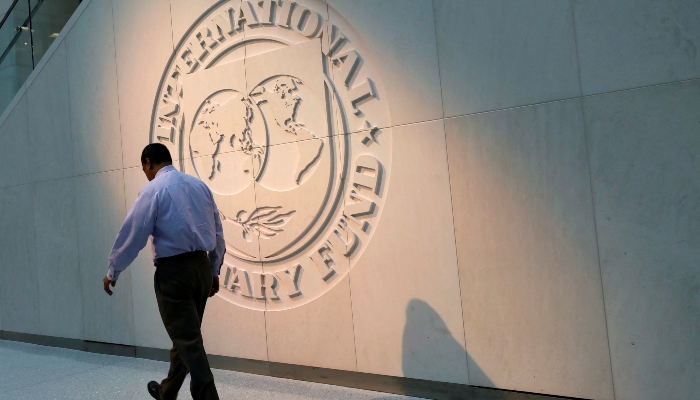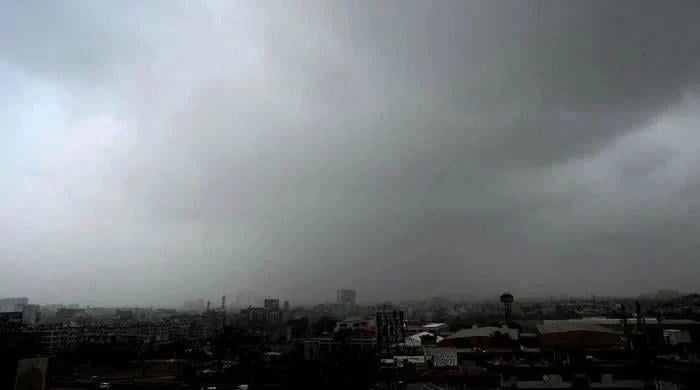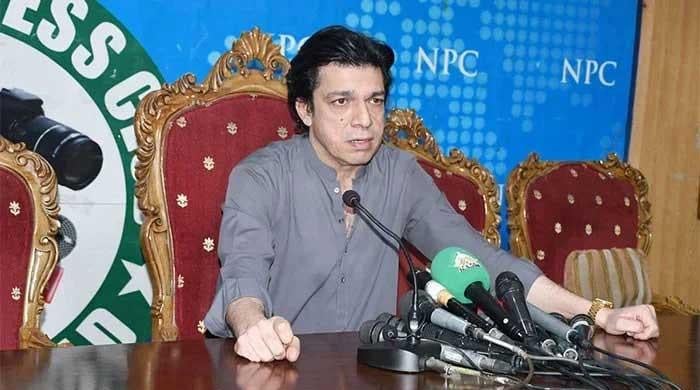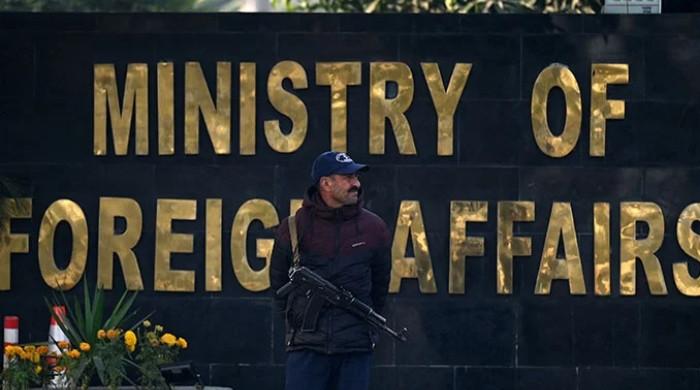IMF review mission to visit Pakistan after formation of new govts
The IMF's mission will finalise the salient features of the anticipated medium-term bailout package
February 12, 2024

- Pakistan's foreign exchange reserves hover around $8.04 bn.
- Third tranche is conditional upon new govt's assuming office.
- Pakistan may face a serious crisis of balance of payments.
ISLAMABAD: The International Monetary Fundy (IMF) review mission will visit Pakistan once new governments are formed in the centre and provinces, which may take two to five weeks after the February 8 general elections.
The IMF delegation's visit is extremely crucial for the completion of $3 billion Standby Arrangement (SBA), which is going to expire on April 12. After that, to avert a default on repayment of foreign debts, the mission will finalise the salient features of the anticipated medium-term bailout package.
The IMF, in its recent staff report, talked about rephasing of access for the second review, to March 15, 2024, to provide sufficient time to complete the programme’s structural agenda.
However, in the wake of lingering controversy over the poll results, the mission’s possible delay for the completion of second review and release of the last tranche worth $1.2 billion under SBA could lead to fears of default on the economic horizon. The country’s foreign exchange reserves hovered around $8.04 billion during the week ending February 2, 2024, after witnessing a decline in reserves by $173 million due to the external debt repayments.
A Finance Division official confirmed to The News on Sunday that the IMF would only come to kick-start the second review talks once the formation of the government was done at the national level.
According to the Ministry of Finance's assessment, the IMF’s review mission might visit Islamabad by the end of the ongoing month or early next month, provided the formation of government was done at federal and provincial levels.
The official said the last and third tranche of $1.2 billion was conditional upon the newly elected government resuming office; the new agreement will also be finalized with the new government.
However, growing shadows on the transparency of election are prevalent, and the USA, EU and other countries have doubts and demanded an investigation into the irregularities and election fraud allegations.
The tentative date for the IMF’s review mission was the first week of February but the IMF refused to visit on the eve of general elections.
If the review takes place in Feb/March, then it would be quite hard for both sides to stick to the completion of the last review and release of the third tranche under the SBA program till April 12, 2024. Then the possibility of striking a new agreement with the IMF might become imminent because the next budget for 2024-25 could only be finalised by keeping the IMF into confidence on the salient feature of key budgetary targets.
If the IMF program is delayed owing to the formation of the new government, then Pakistan may face a serious balance of payments crisis and again will be on the brink of default.
Dr Khaqan Najeeb, former adviser finance ministry, told The News that the most critical task at hand was timely completion of the second review. This review is based on end-December 2023 performance and continuous criteria.
The IMF’s proposed schedule of reviews shows March 15, 2024 as the date for availability of SDRs 828 million for Pakistan. He felt the review visit must also be used by Pakistan’s authorities to discuss the contours of a new program supported by the IMF. It is hoped that the authorities are working out the fiscal and monetary frameworks, silhouettes of social spending for cost-of-living relief and an agenda of structural reforms, particularly for energy sector viability, SOE divestment and climate resilience.









